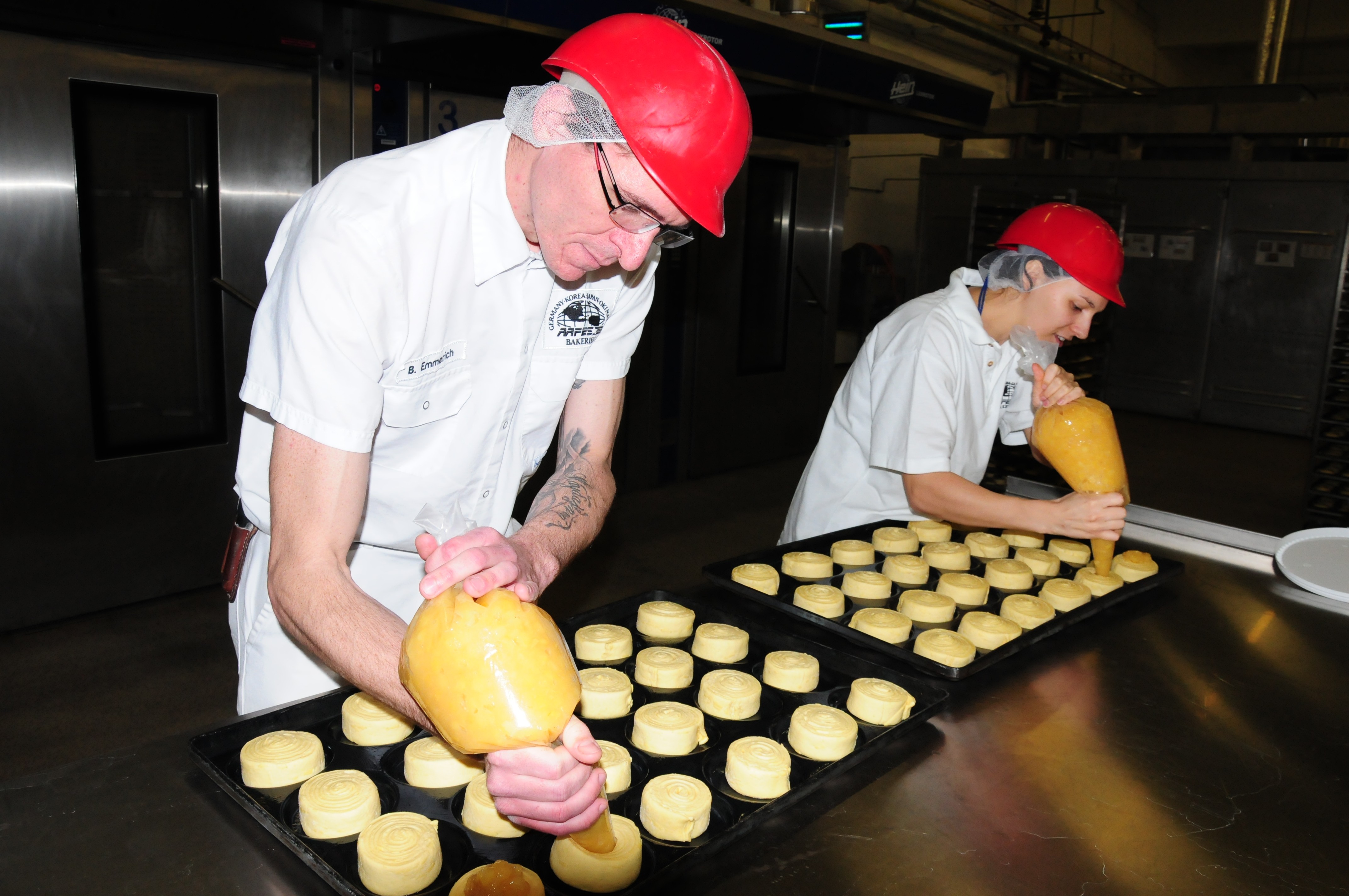GRUENSTADT, Germany - One of the first things you'll notice when you step onto the floor of the Army and Air Force Exchange Service-Europe bakery in Gruenstadt is the sound.
It's a loud whirling almost jackhammer-like sound that echoes from a towering machine near the entrance. It's similar to what you might hear at a construction site.
The bakery, built in 1982, is AAFES' (now known as the Exchange) largest production plant in the world.
In the background more industrial sized machines methodically mix, measure and construct cookies, cakes, pastries, tortillas, buns and breads destined for the shelves of restaurants, commissaries and kitchens across Europe.
Unbeknownst to many, every single crumb is made from scratch right in Gruenstadt.
"The American troops are getting American products based on American recipes and it's fresh.
It's not sitting around in a container on a boat for days or weeks waiting to get here," said Uli Paschke, general manager. "Our customers are getting a fresh product and they're getting the same product as they would in the states."
A team of 90 bakers and 16 mechanics man the bakeries' eight sections, monitoring, mixing, sorting and decorating the dozens of baked goods produced inside the plant.
"I love the bakery, it's my baby," said Mathias Baum, bakery manager. "In a normal bakery, in the U.S. or Europe, most bakeries produce 10 or 15 line items but we produce over 200 line items. Wonder Bread ... Miltons ... there are so many. You will find no other bakery that has the approval to produce all these products in one place," he added. "You need a lot of knowledge to do that and you can only do that with a great team."
Bakers work in shifts from midnight-3 p.m. Monday-Friday and on U.S. and German holidays if necessary.
Afterwards, a sanitation and maintenance crew comes in to clean and prep the plant for the next day's operations.
The smells of cinnamon, fresh-baked bread and apple-filled pastries baking in a nearby oven, waft through the plant providing a pleasantly intoxicating aroma.
Hamburger buns glide down a conveyor belt awaiting a fresh sprinkling of sesame seeds and miniature donuts plunge into a golden hot-oil bath to be followed by a dip in powdered sugar.
Baum expertly rattled off the long list of products produced here: bagels, pizza crust, cup cakes and garlic bread.
But even he found it difficult to choose his favorite from the list. "I like so much ... I like the muffins, I like Milton's bread and the walnut cookies. I think they're unbelievable. If I have one box, I have to eat it until its empty," Baum said.
Each day the plant produces more than 200 varieties of fresh baked goods such as Wonder Bread and Cinnabon rolls.
It also provides a variety of breads to restaurants like Burger King, Macaroni Grill, Johnny Rockets, Popeyes, Anthony's Pizza and Chili's.
Each product is identical to the ones service members, Department of Defense civilians and their families find in the United States - right down to the packaging, recipes and ingredients.
Inspectors from Germany and the United States routinely visit the plant to ensure all products meet U.S. and German health regulations and that recipes are followed exactly.
There is also a quality assurance lab on site responsible for taking daily samples.
Last year the plant shipped more than 8 million pounds of baked goods to their customers in Germany, Italy, Turkey, Africa, Iraq and Afghanistan.
Ninety percent of the ingredients, such as flour, are imported from the United States but sugar and some packing materials are acquired locally.
Last year the bakery produced 3.2 million loaves of bread, 625,000 cookies, 1.8 million donuts, 72, 000 cakes and nearly 20 million buns.
"We like what we do and we want you to enjoy our products," Baum said.
The Gruenstadt Depot was built in 1953. It also houses the Culligan drinking water plant and a cold storage facility.


Social Sharing